Muslim Women’s Zakat Fund: A Call to Take Care of Muslim Women in the UK
by Amaliah Team in Ramadan on 29th March, 2024
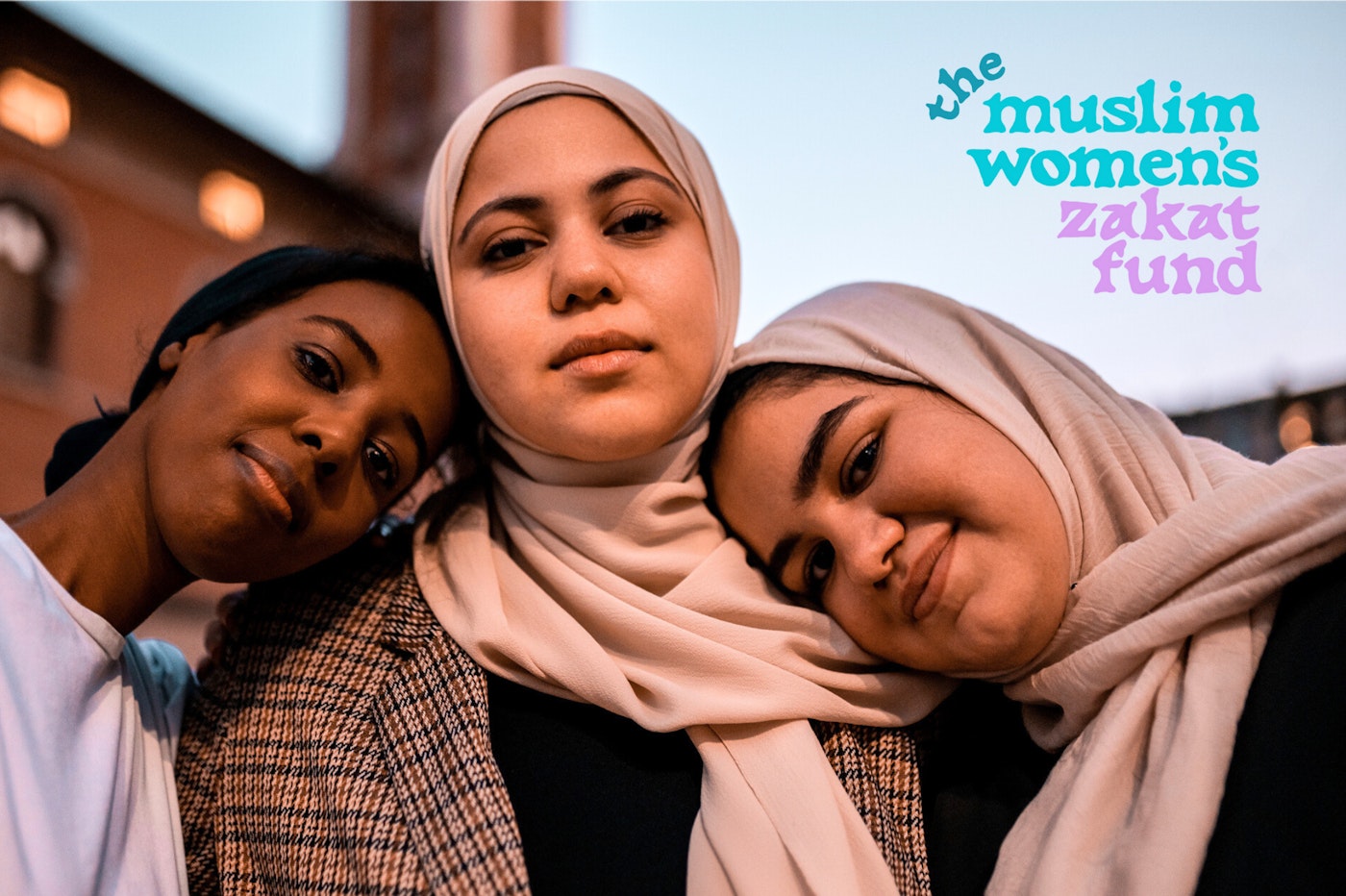
“What is the point of three million Muslims if Ayesha has to sleep on the streets?” asks the CEO of the National Zakat Foundation, Dr. Sohail Hanif. This is the notion on which the largest Zakat distributing institution for UK Muslims, The National Zakat Foundation, was born; centred around the needs of Muslim women first and foremost.
Over the last 8 years, Amaliah’s work has been guided by care for Muslim women and we are proud to be partnering with NZF to launch The Muslim Women’s Zakat Fund.
Zakat is community solidarity in action, and this Ramadan we are asking the Muslim community to show solidarity to Muslim women in the UK. To uphold the rights of those that are in need of care. Consider giving a portion of your Zakat to Muslim women in the UK.
To mark the launch of the fund, Amaliah brought Dr. Sohail Hanif (CEO of the National Zakat Foundation), Lucy Bushill-Matthews (Author and Former COO of the National Zakat Foundation) and Hudda Khaireh (Researcher and Writer) for an evening of conversation about economic justice and collective care.
Here is a window into the conversation, as told by Furvah Shah.
Zakat as our divine tool
Born from an intention more than two years ago to ensure Muslim women across Britain are looked after, the fund aims to help those facing hardship across housing, employment, healthcare, education and more. As written by Audre Lourde and quoted at the launch of the fund by Amaliah’s CEO, Nafisa Bakkar, “The master’s tools will never dismantle the master’s house. But as Muslims, we have been given a whole set of divine tools by Allah to build alternative realities that uphold community, justice and care.”
Zakat is our divine tool, with revolutionary potential to transform lives, communities and futures.
Islam was never meant to be practised in isolation. Our faith is rooted in communal worship as well as communal care. As Dr. Sohail mentioned, Zakat and Salah are mentioned together 28 times in the Quran, with the implication being that Salah brings us together in community and then Zakat asks us to look after one another.
Huqooq ul Allah (Rights of Allah) and Huqooq ul Ibad (Rights of Humanity) go hand in hand, and Zakat is a pillar that beautifully combines our duties towards Allah and our duties towards our fellow Muslims.
We are a people who are given endless advice to uphold the Sunnah of collective care, be that in smiling at each other, visiting the sick, making dua for one another and wanting for others what you want for yourself. The foundations of the first Muslim society in Madinah were based on the collective care the Ansaars provided to the Muhajireen of Makkah. Zakat is a mercy from Allah SWT on all of us, whether we are the givers or receivers.
One of the most important things the fund aims to do is reframe our mindset around Zakat. Zakat is first and foremost the right of the recipient and unlike our state solutions, Zakat honours the receiver first and foremost.
As Dr. Sohail mentioned at the panel, “It can make us feel that as Muslims, we are a community. We don’t suffer in silence and that there are people there for us to help,” he continued, adding that if we are oblivious to the struggles of those we pray next to in our local mosque, we are doing something wrong as a community.” We believe in the power of collective care to uplift our community.
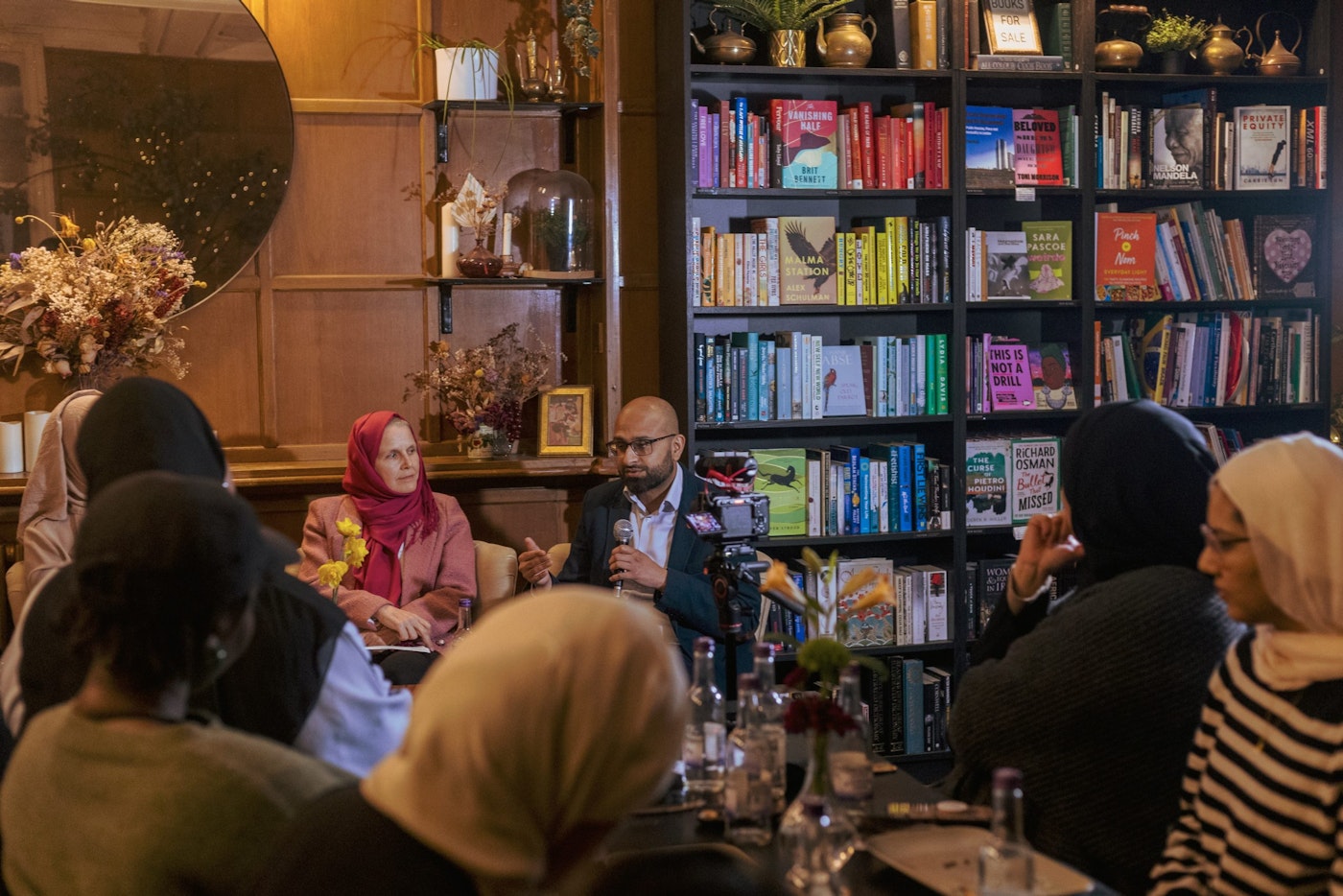
Thinking beyond state solutions
This conversation exists against a very specific political and socio-economic backdrop. We have been let down by state solutions and are seeing unprecedented levels of poverty in the UK, Muslims are falling into poverty at a rate 10x higher than the national average, 50% of Muslims are under the poverty line, Muslims are over-policed and represent 15% of the prison population (but represent 6.3% of the UK population), and in general, 4.3 million children in the UK are in relative poverty, the highest ever.
We must realise that the power lies with us. Zakat has the revolutionary potential to transform lives, communities and futures with Dr. Hanif describing the pillar as “solidarity in action”. Considering simultaneous and intertwined crises such as housing, poverty, food insecurity, abuse and more, this is more important now than ever. As described by Lucy Bushill-Matthews, the former COO of the National Zakat Foundation, Zakat can not only transform one’s finances, but can also help them gain a closer connection to their communities and their Creator.
“On average, Zakat helped people feel a part of their community, more back on track financially and closer to their faith and God,” Lucy shared at the launch of the Muslim Women’s Zakat Fund, which left me and others in the audience surprised yet inspired. “One recipient, Zainab, was taken into modern slavery at age 12, and the people who enslaved her forced her to claim benefits, which led to her being imprisoned. But the National Zakat Foundation supported her in getting her life back on track.” This is just one example of the many, life-changing powers of Zakat for its recipients.
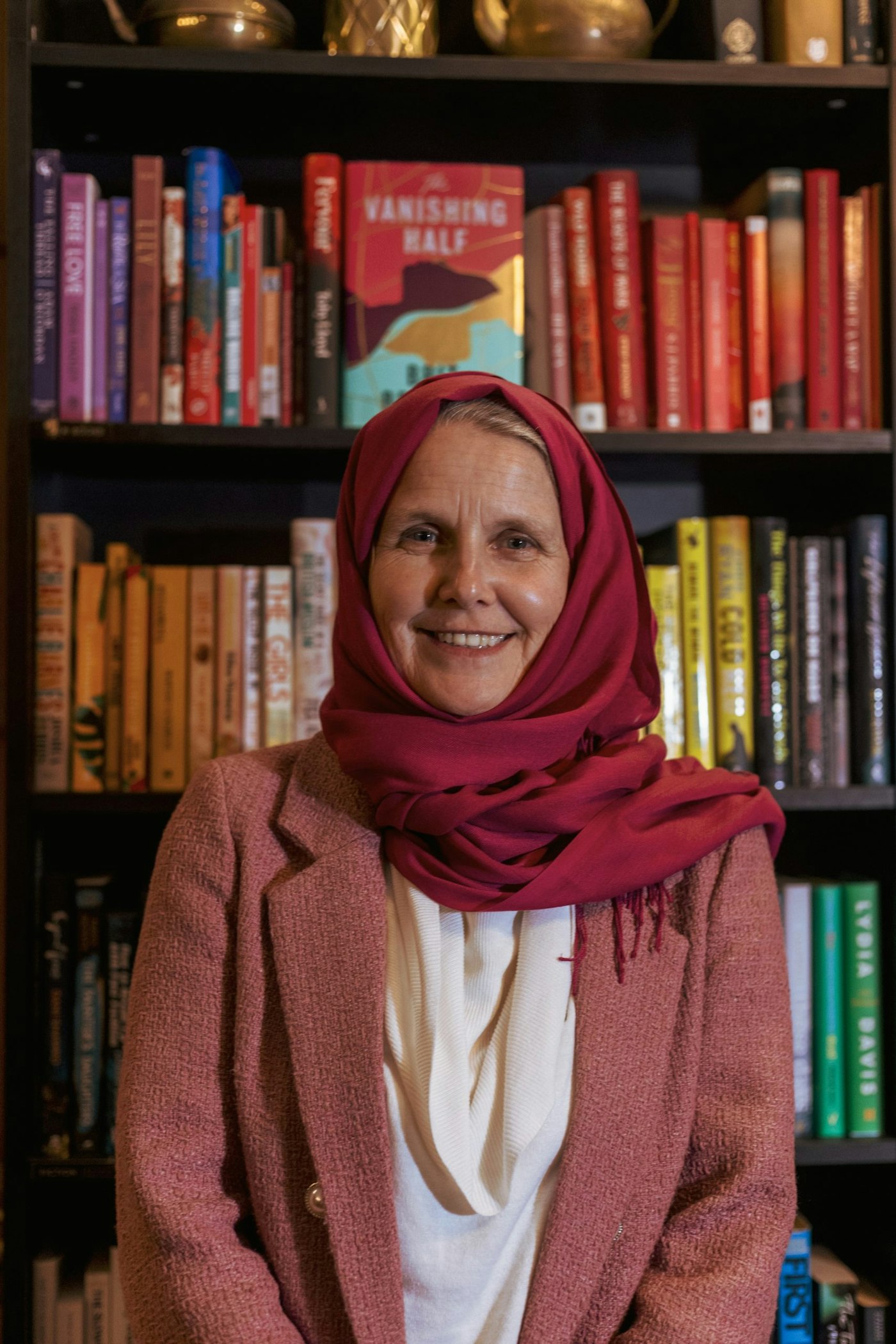
With around 50 per cent of Muslims living below the poverty line in Britain and one in five having used a food bank, this is more necessary than ever to uplift our often underprivileged communities. Dr. Hanif said, “There are various rules to Zakat to make sure it’s a dignified exchange for the recipient. They can leave feeling empowered, ennobled and uplifted.”
Lucy added that many of the pillars of Islam are deeply communal, but this element has often been lost when we think of Zakat. “When I converted to Islam, I did so with witnesses. When we go to Hajj, we’re amongst thousands of others. Why is Zakat any different?” she shared. “In the context of the other pillars, community is consistent in our faith and helps us grow closer to God.”
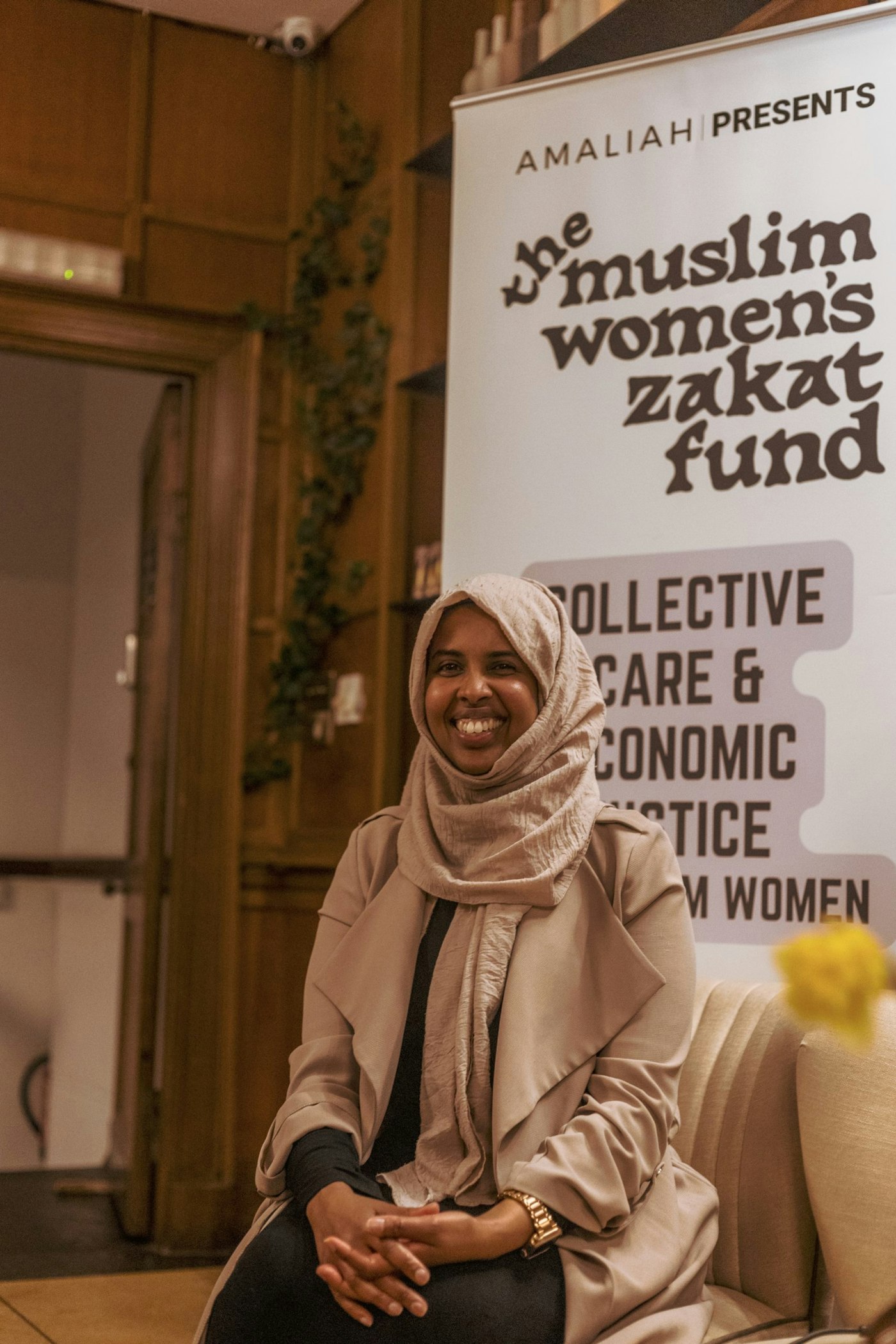
Hudda Khaireh, a researcher and artist with a background in Public International Law, truly believes in the transformative nature of Zakat and how it can reimagine our communities through it. “Our wealth is from Allah and if you have wealth, your Zakat already belongs to those in need which puts you in a constant relationship with others,” she said at the launch event.
“There’s no Western concept of bestowing charity on the needy, this is the haqq (right) of others and you are purified through it.
As Allah (SWT) says in the Qur’an,
“Take from their wealth (O Prophet) charity to purify and bless them, and pray for them—surely your prayer is a source of comfort for them. And Allah is All-Hearing, All-Knowing.” (Surah At-Tawbah 9:103)
“Our current economic system is based in riba,” she continued, “But your wealth is written for others and can be the means that Allah’s name, Al-Razzaq which is the Total Provider, can be felt by another Muslim. When we are in community, such as standing in prayer together or breaking fast together, there is a beautiful barakah in it where we can meet communally and meet another’s challenges. It’s as simple and as radical as that. We are each other’s helpers and not alone anymore.”
Zakat is the economic powerhouse of Muslims
Although there are specific categories of people who can receive Zakat, it is non-discriminatory by nature and removes barriers to help through direct cash transfers, empowering individuals to support themselves in the way they need. But why are Muslim women in Britain in particular need of such a fund like the one created by Amaliah and the National Zakat Foundation? From racial and religious discrimination to domestic abuse, violence and more, Muslim women are particularly at risk and statutory and government provision is simply not enough. The power of Zakat can help Muslim women take back control of their lives.
For example, take a Muslim woman facing physical violence at home. Not only does she face the pain that such a situation can cause, but there is often an intertwined and constant fear of not being able to financially survive alone. This can keep someone in an abusive situation for a long period of time unnecessarily.
This is where the Muslim Women’s Zakat Fund comes in, so that the woman in question can have the financial means to leave her abusive partner or family member, stand on her own two feet and heal from her traumatic past. With this fund, which is created by and for Muslim women, this can vary from providing basic living costs to supporting the financial burden of an Islamic divorce. Their needs are understood, their struggles are seen and their dignity is preserved and upheld.
This is the transformative and revolutionary nature of Zakat: the profound ability to alter the course of Muslim women’s lives for the better and create an environment for them and their families where they feel safe and secure.
Knowing that they are not alone and that Allah (SWT) has blessed them with a caring community is enough to uplift individuals and strengthen not only their own faith but also those around them. It removes the shame that can be felt by receiving charity and creates the warmth of collective care, meaning they can turn to this fund as if it were a loving friend, a caring neighbour or even just another member of the Ummah of the Prophet (ﷺ) to lean on in their time of need.
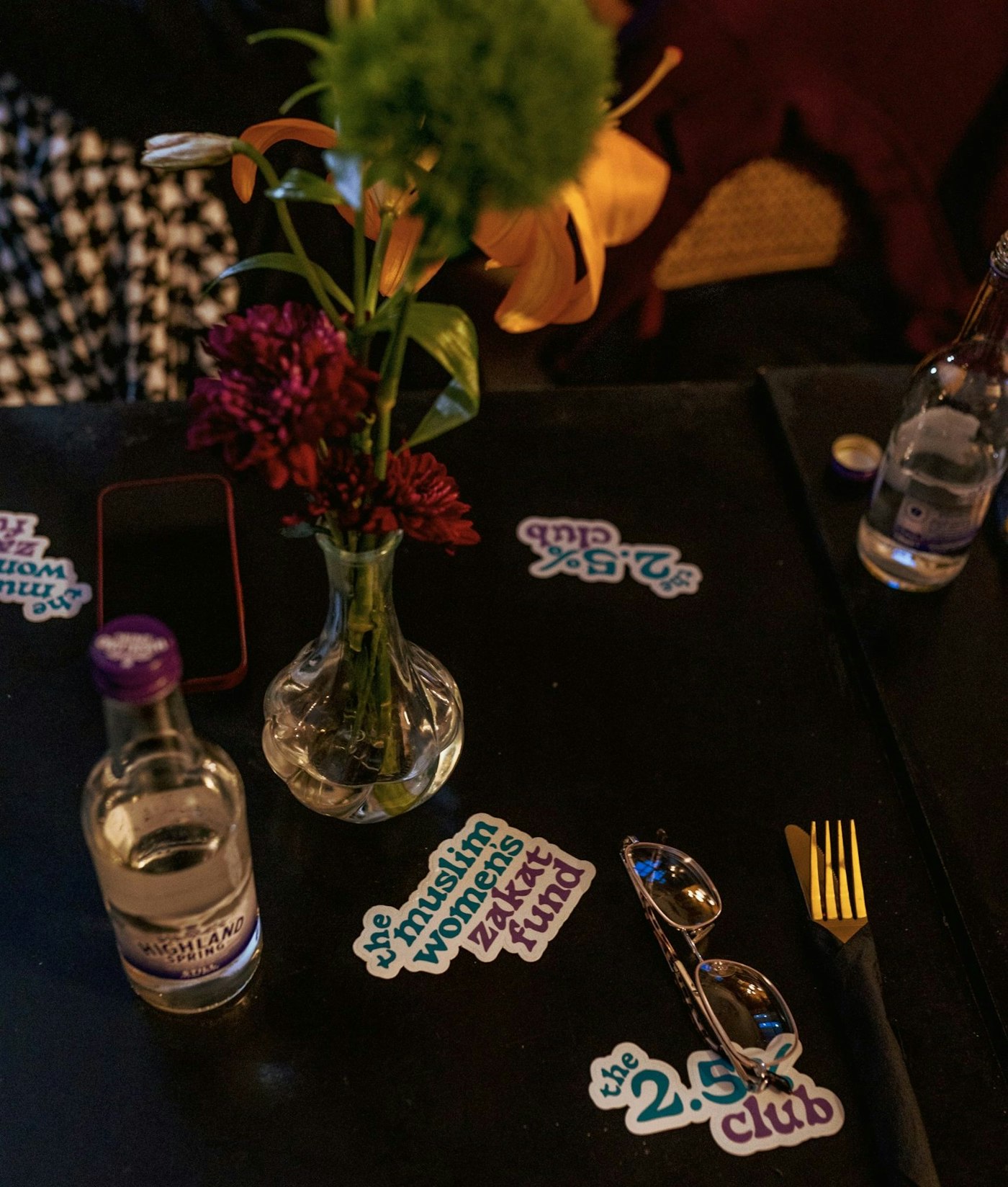
Zakat is collective care
“As Muslims, we believe in jinns, angels, the unseen. We are required to have an imagination in order to be a believer, why can’t we imagine economic justice and collective care?” asked Nafisa. For future recipients of the Muslim Women’s Zakat Fund, the goal is to provide an accessible, empowering and transformative source of funds that can help the most vulnerable in our communities to change their lives. As Muslim women, we are one of the most targeted communities in the UK, from politics to policing, but we also have an Islamic duty to help out our Muslim sisters through Zakat, as Allah has ordained. Zakat is more than an online donation or an anonymous gift, it has the power to directly help a woman like you or me to change their life and, in turn, gain closeness to their Lord.
Dr. Hanif said, “When you feel justice in the world is something you can champion, that you can change what happens outside, both recipients and donors can harness this power for the good of individuals, communities and through the grace of Allah.”
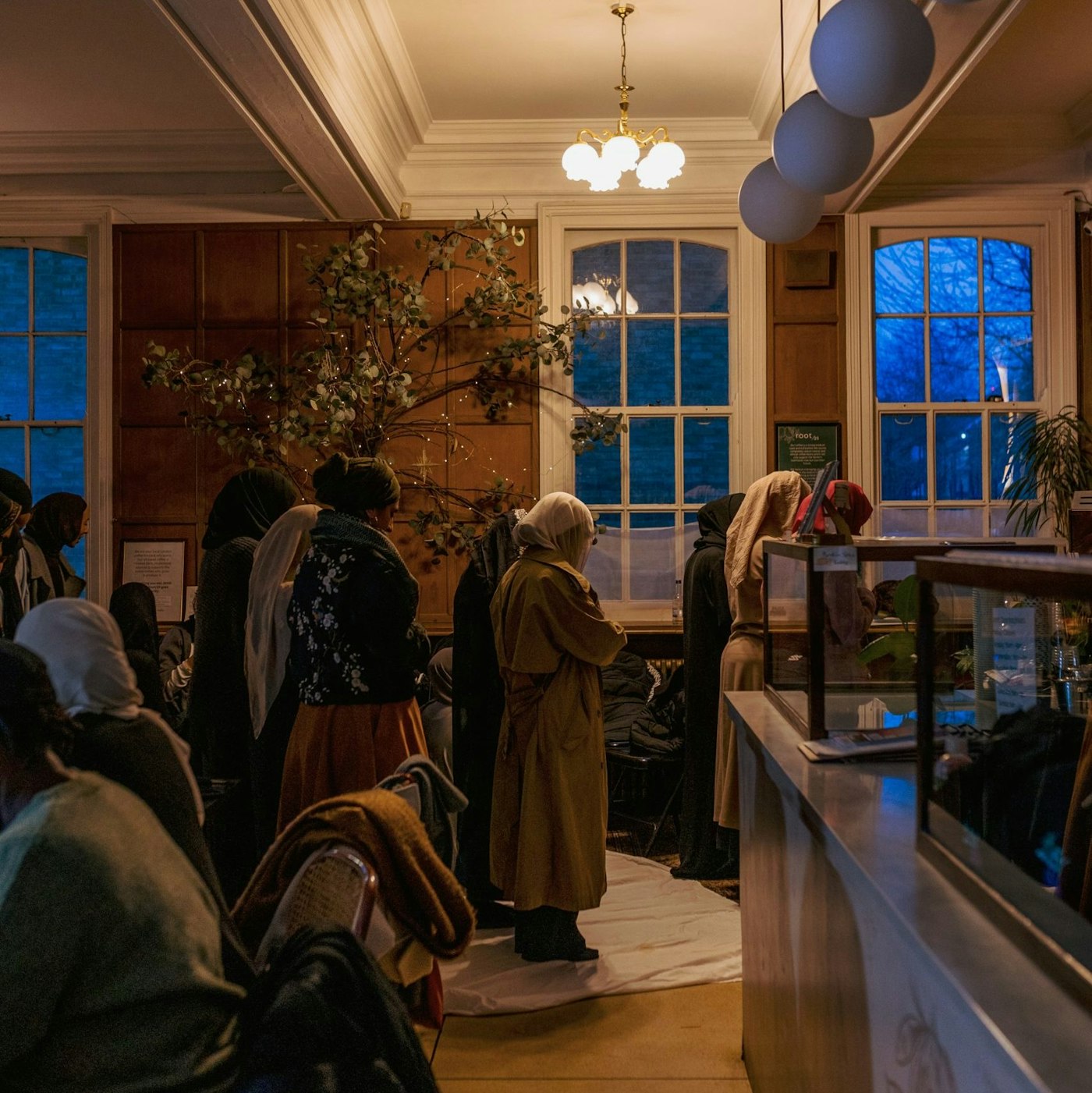
Through the Muslim Women’s Fund, we are reminded of the fundamental teachings of Islam – the obligation to care for one another, to uplift those in need, and to ensure that no member of our community is left behind. As an Ummah who worships Al-Muqsit (The One Who is Most Fair and Just), we must implement justice in our lives and in our communities, be it social or economic. This Ramadan and beyond, as we stand shoulder to shoulder with our fellow Muslim women in the mosques, let’s also remember to offer that shoulder for them to lean on by fulfilling their rights and building a stronger community through the wealth Allah (SWT) has entrusted us with.
This Ramadan, please consider giving a portion of your Zakat to the ‘Muslim Women’s Zakat Fund’ this Ramadan and help to uplift and transform the lives of Muslim women living in the UK, changing whole communities and fulfilling the rights of the Ummah through collective care.
Amaliah Team
This article was written by a member of the Amaliah team or a collective team effort. You can follow us on @amaliah_tweets for the latest or head over to our Instagram @amaliah_com. If you're reading this and are thinking about contributing an article then send us an email with a brief or a full article to contribute@amaliah.com